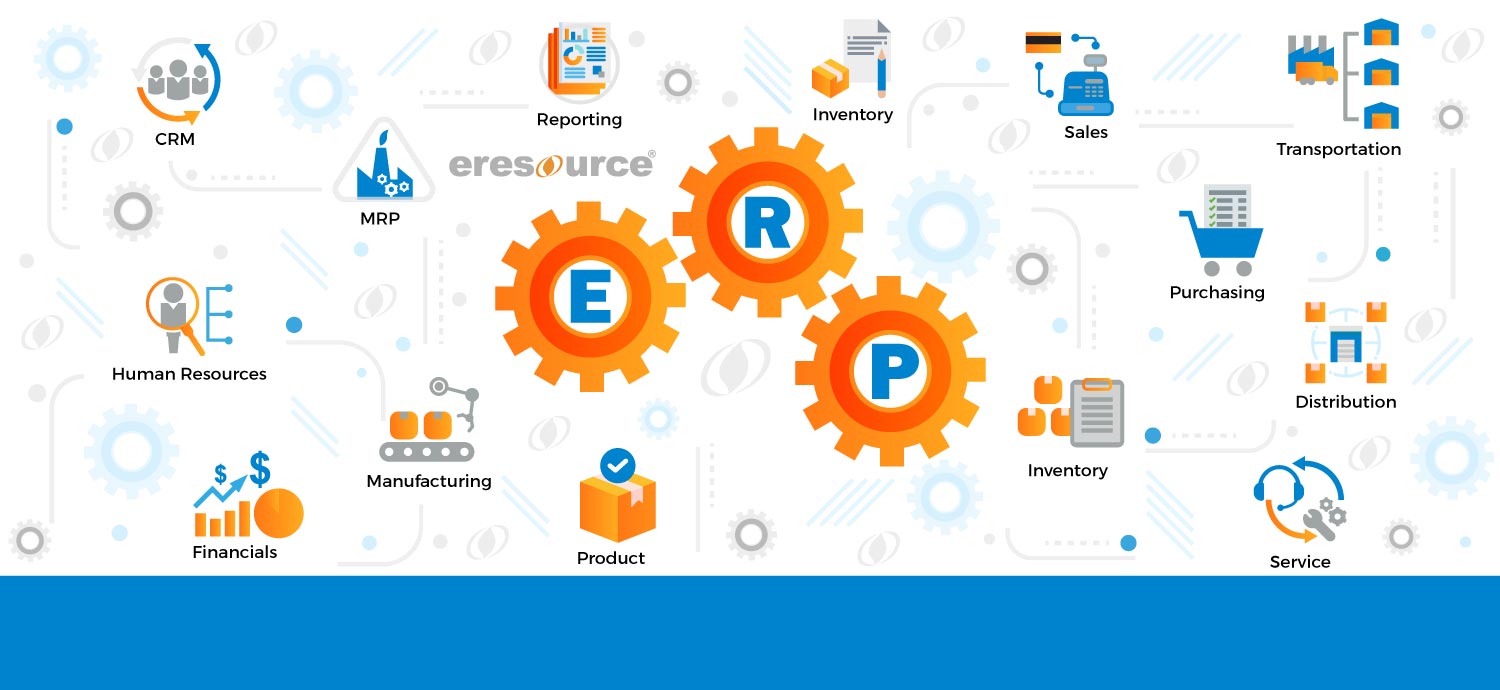Manufacturers have started weighing the perks of integrating Enterprise Resource Planning (ERP) and Customer Relationship Management (CRM), and it’s not that difficult to see why. This integration can help manufacturers streamline their business processes and increase production, marketing, sales, and customer service profitability.
While you might not rapidly see the benefit of integrating ERP Software for Manufacturing Industry and CRM systems, its absence could reveal a few potential challenges. Therefore, consider leveraging advanced integration to increase your manufacturing unit’s productivity, scalability, and profitability.
This guide will help understand the advantages a manufacturing company can avail of by integrating ERP and CRM.
- 360-degree view of customers
With CRM and ERP integration, you can have a unified view of your customers. It’s the most significant reason why you need the opt for integration. Integrating ERP and CRM lets you enjoy a 360-degree view of your customers. It offers complete visibility and accuracy to accounting, sales, finance, and support. Moreover, it generates better insights into the manufacturing company’s customer base.
Improved visibility and insights allow you to efficiently track your customer preferences, demands, and behaviour and, thus, increase loyalty and profitability. In addition, you can identify cross-selling and upselling opportunities with target customers. CRM and ERP-integrated systems will help implement data-driven strategies and determine future growth potential.
Also Read – Which is the best cloud manufacturing ERP for MSME in India
- Consistent information
Manufacturing-specific ERP and CRM systems can store similar customer information data. Therefore, there is a possibility that both these platforms store duplicate customer data. However, such a problem occurs only when these systems work in silos. When having two separate systems, managers usually update the records in both.
You can avoid duplicating data by integrating ERP and CRM platforms. Managers can now access real-time, up-to-date, and accurate customer information. Moreover, an integrated system can aid in dealing with inaccurate data. As a result, your business can enjoy improved data-driven processes and outcomes.
- Increased mobility
Real-time data enable the sales and operations team to deal with customer contracts seamlessly. It further helps manufacturing companies hasten the contract approval processes and even sign the contract on the same day. Thus, with a centralized system, you can shorten vital process cycles.
Moreover, an ERP system integrated with CRM will make it easier to access valuable information and update tasks from any location. Your company’s revenue will be increased, unlocking new business opportunities.
Also Read – ERP for food processing industry
- Better employee collaboration
A connected and integrated workforce can increase your manufacturing unit’s productivity and efficiency. They can drive better results for the company with everyone on the same page. In the past, each team used to have a different set of similar data, making it impossible to access the right information at the right time.
Your team can share and use real-time information when CRM and ERP work together. It further increases the company’s chances of achieving better and more effective results.
- Reduced training and IT overhead
According to statistics, businesses spend around 31.5 hours and $1,208 each year on training per employee. By implementing a single unified platform for ERP and CRM, you can reduce your training and IT overhead expenses as employers can easily teach employees to handle both systems simultaneously.
Moreover, extensive training will save your employees time and enhance their skill set. They will learn to take critical actions and how these systems can affect other operations and departments. Even the cross-departmental approach will keep them more aware of your company’s core goals.
Also Read – ERP for Printing and Packaging Industry
- Boost customer relationship
Real-time information is the key to improved customer relationships. And with ERP and CRM integrated systems, you can easily anticipate your customer requirements and reduce support service time. In turn, your existing and potential customers will enjoy a better experience. This leads to elevated customer satisfaction, loyalty, and retention, driving repeat sales.
Concluding Thoughts
ERP for the Manufacturing sector, along with CRM, offer multiple benefits to businesses. What if you integrate these systems and drive exceptional perks to your manufacturing unit?
With an integrated ERP and CRM platform, your company can avail of the above-discussed benefits. Still, every manufacturing company is unique. So, it will help if you look for a customized solution. Pay attention to crucial details for enjoying the benefits of ERP and CRM integration. Assess both systems, clean up your data, and prepare an integration plan.
Also Read – ERP for trading business
Categories
Register for Free Demo!
Recent Post
-

eresource ERP 360 - an
11th Apr 2019 -

A competitive ERP system for
17th Apr 2019 -

Auto components manufacturing industry has
17th Apr 2019 -

Make the best use of
17th Apr 2019






